
Abandonment, Richness, Surprise: Virginia Woolf as Critic
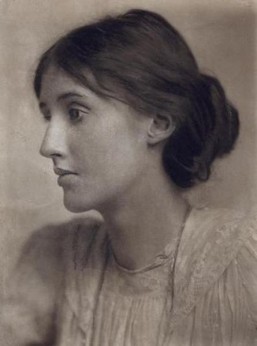 From a certain perspective, Virginia Woolf did not write criticism at all. Her literary essays and journalism are truer specimens of belles lettres than of the kind of writing that surrounds Woolf’s Common Reader series on my university library’s shelves, books with titles like Virginia Woolf and Postmodernism, or Virginia Woolf and the Politics of Language, or Virginia Woolf and the Problem of the Subject, or Hellenism and Loss in the Works of Virginia Woolf. These are books written by and for specialists; their stock-in-trade is the relentless analysis of particulars, the meticulous interrelation of text and context–all self-consciously framed with theoretical abstractions. Associative leaps, bold assertions, insights born of intuition and experience rather than justified by detailed exegesis and authoritative citation: for today’s professional critics, these are as inadmissible as stolen evidence in a courtroom.
From a certain perspective, Virginia Woolf did not write criticism at all. Her literary essays and journalism are truer specimens of belles lettres than of the kind of writing that surrounds Woolf’s Common Reader series on my university library’s shelves, books with titles like Virginia Woolf and Postmodernism, or Virginia Woolf and the Politics of Language, or Virginia Woolf and the Problem of the Subject, or Hellenism and Loss in the Works of Virginia Woolf. These are books written by and for specialists; their stock-in-trade is the relentless analysis of particulars, the meticulous interrelation of text and context–all self-consciously framed with theoretical abstractions. Associative leaps, bold assertions, insights born of intuition and experience rather than justified by detailed exegesis and authoritative citation: for today’s professional critics, these are as inadmissible as stolen evidence in a courtroom.
Against their painstakingly researched conclusions, Woolf’s commentaries seem—indeed, are—impressionistic, idiosyncratic, unsubstantiated. On what basis, with what justification, can she claim that Donne “excels most poets” in his “power of suddenly surprising and subjugating the reader”? What exactly does it mean to “subjugate the reader” anyway? Where are the quotations—where is the specific analysis of prosody and form, metaphor and imagery—to support that claim, or the claim that in “Extasie” “lines of pure poetry suddenly flow as if liquefied by a great heat”? Is there “something morbid, as if shrinking from human contact, in the nature worship of Wordsworth, still more in the microscopic devotion which Tennyson lavished upon the petals of roses and the buds of lime trees”? Is it “the soul that is the chief character in Russian fiction”? In all Russian fiction?
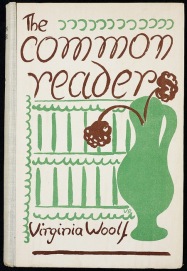 Why, too, does Woolf write so much about writers, and comparatively little about their writing? Or, more accurately, why is it so difficult to distinguish between the writers and their writing in her essays? “Gissing is one of the extremely rare novelists who believes in the power of the mind, who makes his people think”; “Nor was Hardy any exception to the rule that the mind which is most capable of receiving impressions is very often the least capable of drawing conclusions”; “At the end we are steeped through and through with the genius, the vehemence, the indignation of Charlotte Brontë.” So much for the death of the author or the autonomy of the text—and so much for any idea that critical conclusions must be both earned and rendered convincing by references to comprehensive evidence. Woolf never argues or proves: she probes, questions, illuminates, and asserts.
Why, too, does Woolf write so much about writers, and comparatively little about their writing? Or, more accurately, why is it so difficult to distinguish between the writers and their writing in her essays? “Gissing is one of the extremely rare novelists who believes in the power of the mind, who makes his people think”; “Nor was Hardy any exception to the rule that the mind which is most capable of receiving impressions is very often the least capable of drawing conclusions”; “At the end we are steeped through and through with the genius, the vehemence, the indignation of Charlotte Brontë.” So much for the death of the author or the autonomy of the text—and so much for any idea that critical conclusions must be both earned and rendered convincing by references to comprehensive evidence. Woolf never argues or proves: she probes, questions, illuminates, and asserts.
Yet next to The Common Reader, those rows of academic volumes are as lifeless as the novels of hapless Arnold Bennett, who, Woolf declares in “Modern Fiction,”
can make a book so well constructed and solid in its craftsmanship that it is difficult for the most exacting of critics to see through what chink or crevice decay can creep in. There is not so much as a draught between the frames of the windows, or a crack in the boards. And yet — if life should refuse to live there?
Woolf believes that some “essential thing” has moved out of Bennett’s house of fiction, and for all the perfectly sincere arguments I could make about the different purposes, standards, and values of academic criticism, when I read it I am often overcome with the same unhappy feeling that there too something essential has “moved off, or on, and refuses to be contained within such ill-fitting vestments” as those shelves of severe erudition.
Woolf’s criticism, on the other hand (and let’s, after all, concede her the term) is full of life and vitality. It is not criticism meant for cataloguing according to Library of Congress rules; it is not criticism as scholarship. It offers us no nuggets of pure truth to wrap up between the pages of our notebooks. Though definite, it is never definitive: its pronouncements are really provocations, at least to me—reading it, I simmer with questions and challenges and counter-examples, along with admiration for the lambent play of Woolf’s mind across her subjects. From the Oresteia to Ulysses, from the Paston letters to Gissing’s New Grub Street: Woolf seems able to talk with ease and wit about anything. Her criticism stimulates us to participate in the conversation with her, though not quite as equals—for there’s nothing common at all about the cultivation or polish of her writing.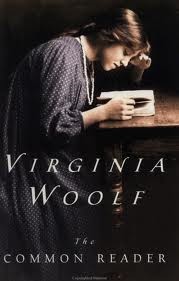
In her essay on “The Pastons and Chaucer,” for instance, we get this:
Such is the power of conviction, a rare gift, a gift shared in our day by Joseph Conrad in his earlier novels, and a gift of supreme importance, for upon it the whole weight of the building depends. Once believe in Chaucer’s young men and women and we have no need of preaching or protest.
Conrad is an unexpected visitor in an essay on the fifteenth century, and also a distracting one. Is she right about that, I find myself asking? Why does she specify the “earlier novels” in particular? She doesn’t say, or give an example—and why should she? Conrad is just a passing thought here, after all. But in her essay explicitly on Conrad, I find not much more that is solid, not much that is supported with what in my daily work I call “textual evidence”—her brush moves too fast, the strokes are too thick with colour to limn in the details. “There are no masts in drawing rooms” in Conrad’s later novels, she observes:
the typhoon does not test the worth of politicians and businessmen. Seeking and not finding such supports, the world of Conrad’s later period has about it an involuntary obscurity, an inconclusiveness, almost a disillusionment which baffles and fatigues. We lay hold in the dusk only of the old nobilities and sonorities: fidelity, compassion, honour, service — beautiful always, but now a little wearily reiterated, as if times had changed.
There’s nothing concrete here, no spelling out of the abstractions she has summoned. The essay includes hardly any quotations from Conrad himself. I do not point this out this as a criticism of her criticism, but to acknowledge how it works: her comments are convincing, not as conclusions about Conrad, but as evocations of Woolf’s experience of Conrad. In speaking so freely about it, she prompts us to think about Conrad for ourselves, and to test our experience against hers.
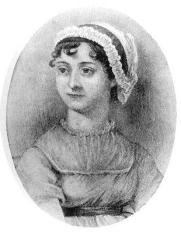 Here’s another surprise: a cameo appearance by Jane Austen in a discussion of Greek tragedy, which is a literature, Woolf says, of extremes, “cries of despair, joy, hate”:
Here’s another surprise: a cameo appearance by Jane Austen in a discussion of Greek tragedy, which is a literature, Woolf says, of extremes, “cries of despair, joy, hate”:
But these cries give angle and outline to the play. It is thus, with a thousand degrees of difference, that in English literature Jane Austen shapes a novel. There comes a moment—‘I will dance with you,’ says Emma—which rises higher than the rest, which, though not eloquent in itself, or violent, or made striking by beauty of language, has the whole weight of the book behind it. In Jane Austen, too, we have the same sense, though the ligatures are much less tight, that her figures are bound, and restricted to a few definite movements. She, too, in her modest, everyday prose, chose the dangerous art where one slip means death.
What a surprise that comparison is, and what conviction it carries. And as you read it, aren’t you, too, suddenly aware of its fitness? Though in Austen—as Woolf knows perfectly well—the movements are comic, rather than tragic. “He is a gentleman; I am a gentleman’s daughter; so far we are equal,” says Elizabeth, quietly, without violence, a moment that indeed has the whole weight of the book behind it, and against which Lady Catherine’s cry of despair—“Are the shades of Pemberley to be thus polluted?”—echoes with shrill futility.
When my own experience of a writer is close to Woolf’s, I read her criticism with special appreciation. I love her essay on George Eliot, for instance, written for the TLS on the occasion of George Eliot’s centenary. Her comments on the novels are, characteristically, at once impressionistic and profound; her epigrammatic utterances, as always, tempt and provoke. What does she mean, after all, by her endlessly quoted line about Middlemarch, “the magnificent book which with all its imperfections is one of the few English novels written for grown-up people”? What imperfections? Why for grown-up people? (A. S. Byatt speculates in an interview that she meant Middlemarch “deals with adult sexuality,” not, I am certain, the first application of that remark likely to be made by my undergraduate students.) Many critics since 1919 have written at length about George Eliot’s problematic heroines, but no one has surpassed Woolf’s rigorous tenderness: 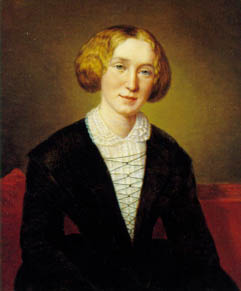
Yet, dismiss the heroines without sympathy, confine George Eliot to the agricultural world of her ‘remotest past’, and you not only diminish her greatness but lose her true flavour. That greatness is here we can have no doubt. The width of the prospect, the large strong outlines of the principal features, the ruddy light of her early books, the searching power and reflective richness of the later tempt us to linger and expatiate beyond our limits. But is it upon the heroines that we would cast a final glance. . . . In learning they seek their goal; in the ordinary tasks of womanhood; in the wider service of their kind. They do not find what they seek, and we cannot wonder. The ancient consciousness of woman, charged with suffering and sensibility, and for so many ages dumb, seems in them to have brimmed and overflowed and uttered a demand for something — they scarcely know what — for something that is perhaps incompatible with the facts of human existence. George Eliot had far too strong an intelligence to tamper with those facts, and too broad a humour to mitigate the truth because it was a stern one. Save for the supreme courage of their endeavour, the struggle ends, for her heroines, in tragedy, or in a compromise that is even more melancholy.
What moves me the most is her generosity to a writer (indeed, a woman) so unlike herself: “as we recollect all that she dared and achieved . . . we must lay upon her grave whatever we have it in our power to bestow of laurel and rose.”
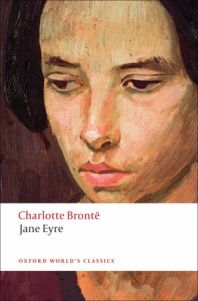 On the other hand, I’d like to challenge Woolf about Charlotte Brontë. Though she often acknowledges the emotional power of Jane Eyre, she doesn’t give Brontë credit for much more than its raw expression. “Thomas Hardy is more akin to Charlotte Brontë in the power of his personality and the narrowness of his vision,” she remarks, but Brontë has “no trace” of the “speculative curiosity” she finds in Hardy. Maybe (though don’t you wish we could pursue this comparison further?), but is it true that all of Brontë’s “force … goes into the assertion ‘I love’, ‘I hate’, ‘I suffer’”? Doesn’t Woolf underestimate, here, the political as well as the religious dimension of Jane Eyre? Isn’t she casting as intensely personal, as exclusively emotional, an experience which is also crucially intellectual? For Woolf, Jane’s feelings—which she reads as Brontë’s feelings—limit the novel’s artistry. “That is an awkward break,” she writes in A Room of One’s Own, about the “low, slow ha! ha!” of Grace Pool’s laugh that Jane hears as she paces the third story of Thornfield Hall:
On the other hand, I’d like to challenge Woolf about Charlotte Brontë. Though she often acknowledges the emotional power of Jane Eyre, she doesn’t give Brontë credit for much more than its raw expression. “Thomas Hardy is more akin to Charlotte Brontë in the power of his personality and the narrowness of his vision,” she remarks, but Brontë has “no trace” of the “speculative curiosity” she finds in Hardy. Maybe (though don’t you wish we could pursue this comparison further?), but is it true that all of Brontë’s “force … goes into the assertion ‘I love’, ‘I hate’, ‘I suffer’”? Doesn’t Woolf underestimate, here, the political as well as the religious dimension of Jane Eyre? Isn’t she casting as intensely personal, as exclusively emotional, an experience which is also crucially intellectual? For Woolf, Jane’s feelings—which she reads as Brontë’s feelings—limit the novel’s artistry. “That is an awkward break,” she writes in A Room of One’s Own, about the “low, slow ha! ha!” of Grace Pool’s laugh that Jane hears as she paces the third story of Thornfield Hall:
It is upsetting to come upon Grace Poole all of a sudden. . . . anger was tampering with the integrity of Charlotte Bronte the novelist. . . . Her imagination swerved from indignation and we feel it swerve.
Are there really no madwomen in Woolf’s attic? A Room of One’s Own is, of course, itself a fabulously angry book, though elegantly, urbanely, so. Is there no room in Woolf’s aesthetic theory for the “goblin ha! ha!” of “demoniac laughter”?
And for all the rapid associative movement of these essays, there can be no doubt that there is an aesthetic theory building. In her mind, it is clear, are always questions about the novel especially: what can it, what does it, what should it do? What is its special province or gift? Briefly, often tangentially, but incessantly, she explores how the novel works, what are its formal means and ends. Inquiring into the role of the chorus in Greek drama, she can’t help but refract her answer through fiction:
Always in imaginative literature, where characters speak for themselves and the author has no part, the need of that voice is making itself felt. For though Shakespeare (unless we consider that his fools and madmen supply the part) dispensed with the chorus, novelists are always devising some substitute—Thackeray, speaking in his own person, Fielding coming out and addressing the world before his curtain rises.
Thinking about the morality of Chaucer, she finds it in “the way man and women behave to each other. . . . It is the morality of ordinary intercourse, the morality of the novel.” (It is particularly, I want to say to her, to enjoy her reply, the morality of Anthony Trollope.) The extremes of “emotion concentrated, heightened” in Elizabethan drama lead her to Anna Karenina and War and Peace: “in the play, we recognize the general; here, in the novel, the particular.”
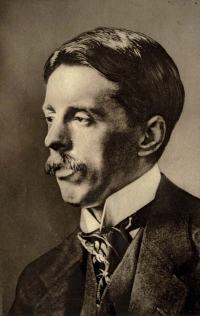 Her sharpest attention is on the development of psychological fiction. In “Modern Fiction,” turning over for inspection the failures of Wells and Bennett and Galsworthy, she concludes that “for the moderns ‘that,’ the point of interest, lies very likely in the dark places of psychology.” But she is not arrogant enough—or she is just too uncommonly well read—to assert that point of interest as a distinctly modern innovation. She has long seen it coming, through the experimentation of her predecessors. In Austen’s Persuasion, for instance, published over a century earlier, Woolf finds evidence of a new interest on Austen’s part in interiority. Had Austen lived longer, written more, Woolf speculates,
Her sharpest attention is on the development of psychological fiction. In “Modern Fiction,” turning over for inspection the failures of Wells and Bennett and Galsworthy, she concludes that “for the moderns ‘that,’ the point of interest, lies very likely in the dark places of psychology.” But she is not arrogant enough—or she is just too uncommonly well read—to assert that point of interest as a distinctly modern innovation. She has long seen it coming, through the experimentation of her predecessors. In Austen’s Persuasion, for instance, published over a century earlier, Woolf finds evidence of a new interest on Austen’s part in interiority. Had Austen lived longer, written more, Woolf speculates,
She would have devised a method, clear and composed as ever, but deeper and more suggestive, for conveying not only what people say, but what they leave unsaid; not only what they are, but what life is. She would have stood farther away from her characters, and seen them more as a group, less as individuals. . . . She would have been the forerunner of Henry James and of Proust.
What—I can imagine her asking herself, as she writes about other novelists—am I doing, what else can I do, with the novel? Surely figuring this out was always, for her, the underlying project of her criticism: everything she read helped her bring the novel as she imagined it into being. Not just Woolf’s essays but also her letters and diaries show her sorting and filtering and shaping her reading into a pattern that leads inexorably to her. “My feeling, as a novelist,” she writes to a friend in 1934,
is that when you make a character speak directly you’re in a different state of mind from that in which you describe him indirectly: more ‘possessed,’ less self-conscious, more random, and rather excited by the sense of his character and your audience. I think the great Victorians, Scott (no–he wasn’t a Vn.) but Dickens, Trollope, to some extent Hardy all had this sense of an audience and created their characters mainly through dialogue. Then I think the novelist became aware of something that can’t be said by the character himself … Middlemarch I should say is the transition novel: Mr Brooke done directly by dialogue: Dorothea indirectly. Hence its great interest–the first modern novel. Henry James of course receded further and further from the spoken word, and finally I think only used dialogue when he wanted a very high light.
This is all rather incoherent, and also, as is the case with all theories, too definite. At the same time I do feel in the great Victorian characters, Gamp, Micawber, Becky Sharp, Edie Ochiltree, an abandonment, richness, surprise, as well as a redundancy, tediousness, and superficiality which makes them different from the post Middlemarch characters. Perhaps we must now put our toes to the ground again and get back to the spoken word, only from a different angle; to gain richness, and surprise.
“As is the case with all theories, too definite”: there’s the clue, I think, to the emphasis in her criticism on richness and surprise rather than method or rigor. She conceives of literature, she writes in “How It Strikes a Contemporary,” as a “vast building” to which all writers contribute. She appeals there to contemporary critics to “scan the horizon; see the past in relation to the future; and so prepare the way for masterpieces to come.” Her own criticism is cumulative and generous in just that way, an ongoing process of exploration complementary to her own literary experimentation.
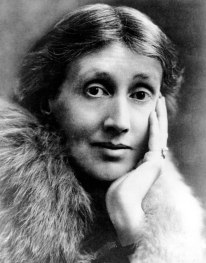 That’s why, for all the formidable range and confidence of the essays, they are not, in the end, intimidating but inviting, in ways that those academic volumes of criticism about Woolf can almost never be. It’s not, of course, altogether their fault: they have different aims and audiences, and must follow the forms that satisfy these. A primary requirement of criticism in this mode is that its authors suppress their own personalities and present their arguments well-wadded with the apparatus of objectivity, from self-consciously meta-critical introductions to extensive footnotes. Though I know there is always a passionate reader somewhere in that text, it is rare indeed for her to show her face, or for us to hear her voice.
That’s why, for all the formidable range and confidence of the essays, they are not, in the end, intimidating but inviting, in ways that those academic volumes of criticism about Woolf can almost never be. It’s not, of course, altogether their fault: they have different aims and audiences, and must follow the forms that satisfy these. A primary requirement of criticism in this mode is that its authors suppress their own personalities and present their arguments well-wadded with the apparatus of objectivity, from self-consciously meta-critical introductions to extensive footnotes. Though I know there is always a passionate reader somewhere in that text, it is rare indeed for her to show her face, or for us to hear her voice.
Woolf, by contrast, confronts both her reading and her readers with total immediacy. Free–and fearless enough–to say just what she thinks, she reminds us that reading is, after all (above all) no more than the encounter of one mind with another. She knew that critics “are only able to help us if we come to them laden with questions and suggestions won honestly in the course of our own reading.” But such is the quality of her mind that she achieves what most readers cannot: “those profound general statements which are caught up by the mind when hot with the friction of reading as if they were of the soul of the book itself.”
Originally published in Open Letters Monthly, March 2012